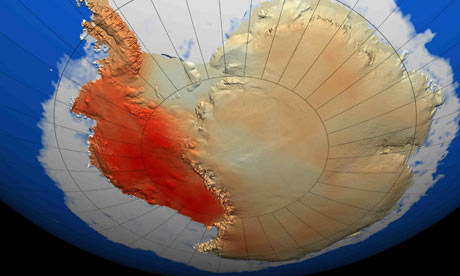Monstrous melt: Distant Antarctica glaciers have scientists worried

The great ice sheet of West Antarctica has begun sliding into what scientists believe is an irreversible collapse. It will take a century, but once glaciers that took tens of thousands of years to form are gone, the absence will result in a sea level rise in the Northern Hemisphere of at least 10 feet.
If this were the only scenario to worry about, it would be more than enough to qualify as a catastrophe. Unfortunately, West Antarctica isn’t the only ice formation that may disappear from the bottom of the world.
A glacier in East Antarctica is also melting. It, too, could affect the sea levels of North America in ways that will cause residents of the hemisphere to regret that climate change deniers were ever taken seriously.
According to a new paper in Nature Geoscience by an international team of scientists, the Totten Glacier of East Antarctica is the fastest-thinning sector of the world’s largest ice sheet. The study said its rapid erosion is the result of warm ocean water flowing beneath it. Because it holds back even more glaciers, they will slip more quickly into the ocean.
While global warming remains debatable only among those determined to save the energy sector from further regulation, the evidence that fossil fuel consumption is having a disastrous impact on the environment is irrefutable. The amount of ice that the Totten Glacier is losing every day to nearby warm waters is “equivalent to 100 times the volume of Sydney Harbor every year,” said the Australian Antarctic Division, which helped craft the paper.
Those in Congress and in industries that oppose addressing this problem will be dead before their disregard of scientific consensus has been definitively refuted. It’s their grandchildren who will inherit a world where the weather is more chaotic and Antarctica is on its way to becoming an open sea.
http://www.post-gazette.com/
Comments